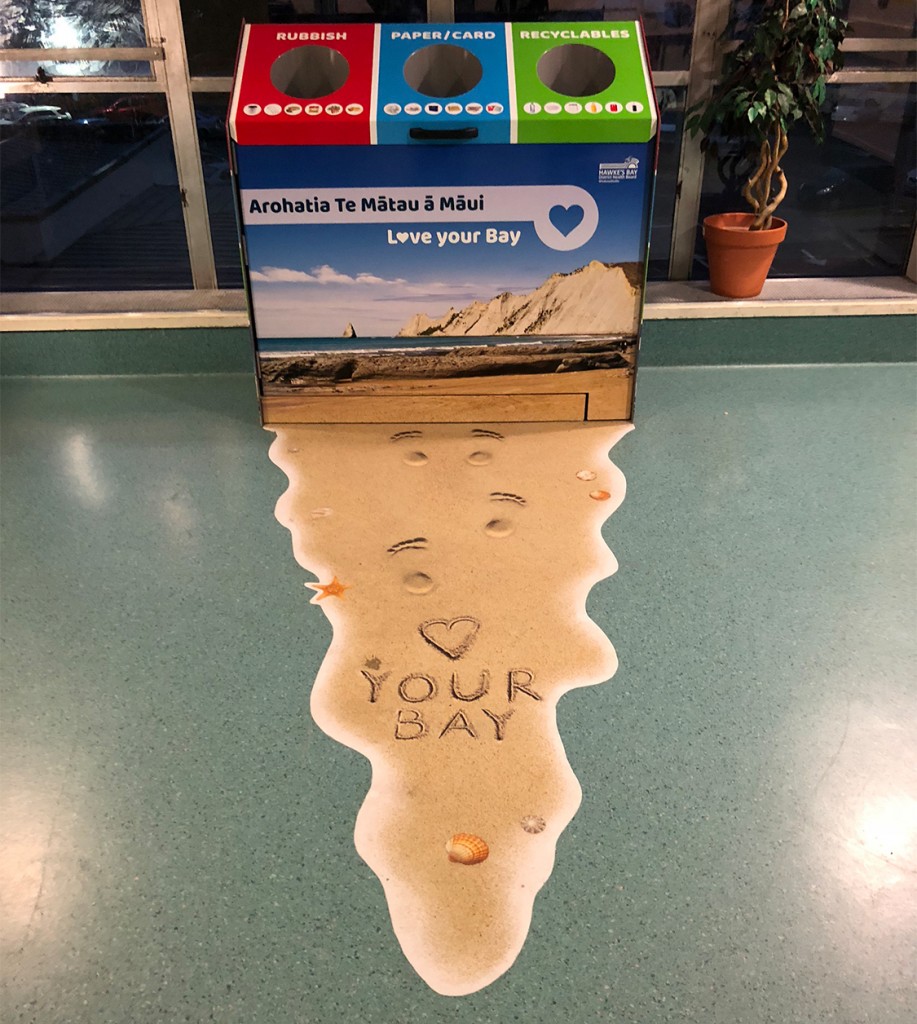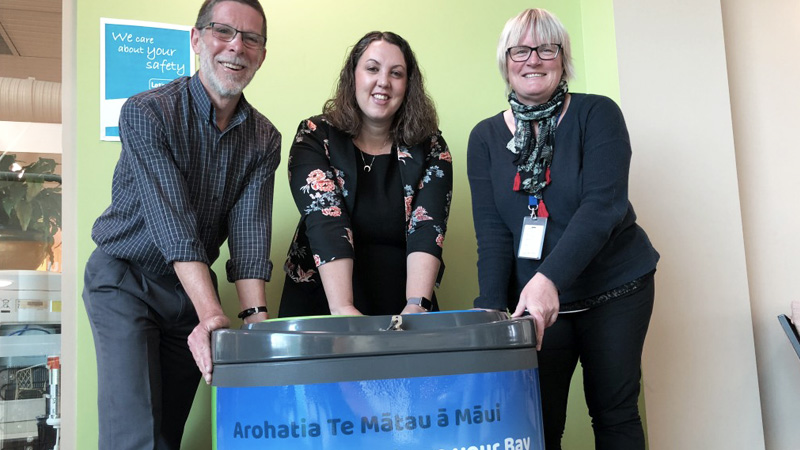New recycling stations look out for health of the Bay
Arohatia Te Mātau ā Māui, do you “Love your bay”? When you are at the Hawke’s Bay Hospital or the Napier Health Centre you will have a chance to show it, with new recycling stations and food scrap bins giving staff and visitors the chance to look out for the health of the patients and the environment too.
The waste diversion options were created after the Hawke’s Bay District Health Board (HBDHB) partnered with Hastings-based resource recovery experts 3R Group to assess and better manage its waste. The stations incorporate the iconic view of Cape Kidnappers, with some stations including an interactive floor decal to encourage foot traffic to them.
The two recently installed stations in Napier follow the installation of a recycling station at Hawke’s Bay Hospital in Hastings earlier in the year. The stations were put in place after 3R conducted a waste assessment for the DHB, and are part of a trial aimed at helping reduce the amount of waste being sent to landfill. The trial also includes small recycling bins in patient rooms on one ward.

Small “Chook bins” will capture food scraps which would have normally gone to landfill, and instead can help feed chickens owned by DHB staff. “Chooks can eat a very wide variety of things, from cooked meat to pasta and vegetables, though there are some exceptions which are clearly marked on the bins,” says 3R Programme Development Manager Sarah Clare.
In New Zealand organic waste makes up the biggest proportion of waste going to landfill, where it creates the greenhouse gas methane.
Health Promoting Schools Facilitator, John Adams, and Property and Service Contracts Manager, Andrea Beattie, took delivery of the stations at the Napier Health Centre and say they are sure staff and visitors will make use of them. “I’m confident that people will be guided to use the bins, especially considering the eye-catching designs they have,” John says.
“It’s really good to be a pilot project to reduce and recycle waste. We are really conscious that the health system produces waste, which contributes to climate change, which in turn affects people’s health.”
3R is pleased to have provided this service to our community and will continue to support the health board in its efforts to improve its sustainability, Sarah says.







